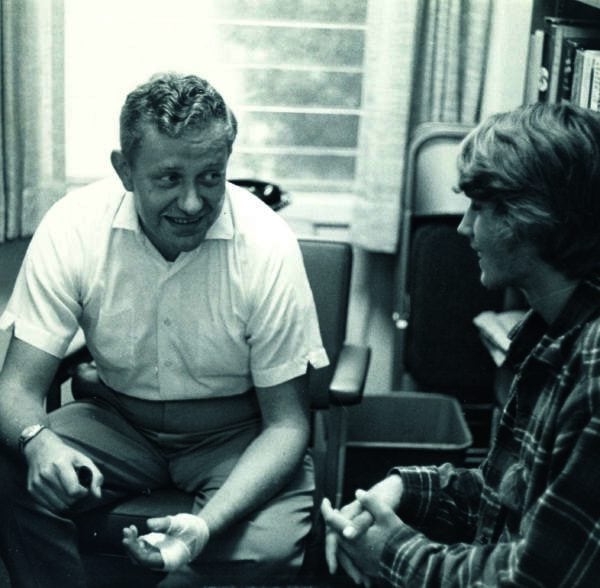
Laszlo Deme. Courtesy New College of Florida
Laszlo Deme, professor emeritus of history at New College of Florida, in Sarasota, died on August 24, 2015. He was best known in the profession for his work on the Hapsburg monarchy and on campus for his high academic standards, encouragement of scholarship, old-world bearing, wry humor, and pithy metaphors.
The son of an army officer, Deme was born on January 29, 1933, in Szombathely, Hungary, a small village near the Austrian border. After attending a Jesuit gymnasium, he enrolled in the University of Budapest, where in 1955 he received the university diploma, the highest degree given at that time, summa cum laude, in Hungarian and comparative literature. In 1955–56, he was an instructor at the Sztalinvaros Gymnasium, where he was bestowed an award for teaching excellence.
Deme fled Hungary during the uprising of 1956. Under cover of night, he simply walked across the border. He later recalled, “There were still a few mines and some border patrols with border dogs. It was adventurous, I suppose.” Arriving in New York City, he enrolled in graduate study at Columbia University, which awarded him an MA in 1959 and a PhD in 1969. His dissertation was published as a monograph under the title The Radical Left in the Hungarian Revolution (Boulder, CO: East European Quarterly, 1976). From 1958 to 1963, he was a researcher for the New York Times, after which he was assistant professor of history at State University of New York at Geneseo.
Most of his career was spent at New College of Florida, where he taught from 1966 to 2000 and rose from assistant to full professor. Deme taught a number of classes in modern European history, ranging from the French Revolution and Napoleon to the Weimar Republic and Hitler. He was known for his course on the Hapsburg Empire, perhaps the only such undergraduate course in the nation. In 1995, he received the Florida Regents’ Teaching Incentive Program Award.
Deme’s articles appeared in such journals as East Central Europe, Slavic Review, the Canadian-American Review of Hungarian Studies, and the International Journal of Politics, Culture and Society, and in such anthologies as the Austrian History Yearbook, Proceedings of the Consortium on Revolutionary Europe, and War and Society in East Central Europe. He was on the editorial advisory board of Brooklyn College’s Studies on Society in Change and reviewed manuscripts for the Slavic Review. In 1979 he was a visiting fellow at New College, Oxford, and in 1993, 1994, and 1999 received travel grants to Budapest, to research contemporary Hungarian nationalism. During the 1980s and 1990s he organized an international scholarly conference on central and eastern Europe on the New College of Florida campus, which drew such distinguished keynote speakers as John Lukacs, István Deák, Stephen Fischer-Galati, Norman A. Graebner, and Lloyd C. Gardner.
For many years Deme served as chair of New College’s Division of Social Sciences, which he almost single-handedly transformed from a tiny and amorphous entity into a serious, professionalized body. He was particularly active during the early, somewhat turbulent years of the college, when he helped impose form on incoherence. A firm defender of his colleagues, Deme always fought—when necessary, courageously—against exploitation within faculty ranks and against unreasonable requests of administrators.
In its obituary, the Sarasota Herald-Tribune accurately referred to Deme’s genial manner, sharp wit, and gracious hospitality. He is survived by his wife, Elaine; daughter, Elizabeth; sons Andrew and Robert; and six grandchildren.
Justus D. Doeneck
New College of Florida
This work is licensed under a Creative Commons Attribution-NonCommercial-NoDerivatives 4.0 International License. Attribution must provide author name, article title, Perspectives on History, date of publication, and a link to this page. This license applies only to the article, not to text or images used here by permission.